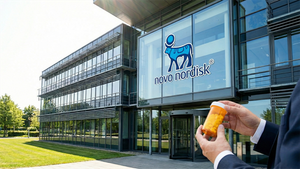Pandemic-related fraud leaves thousands without access to basic human needs
SOURCE: NortonLifeLock
DESCRIPTION:
By Eva Velasquez, President/CEO, Identity Theft Resource Center
At the Identity Theft Resource Center (ITRC), the organization I lead, we empower and guide people to minimize their risk of identity theft and mitigate the numerous impacts of identity crime. This year, we spent a lot of time working with victims of pandemic relief fraud. Victims that contacted ITRC reported having their unemployment benefits denied due to fraudulent identity issues, had their stimulus payment stolen, had fraudulent COVID-related loans taken out in their names, and were scammed into providing personal or payment information to criminals.
Though government and private data have shown the massive scope of identity fraud linked to pandemic relief benefits – like how unemployment benefits fraud jumped nearly 3,000% last year – there has been little information about the effects of identity fraud on the victims who have been denied these much-needed benefits.
While everyone is living through the effects of the COVID-19 pandemic, identity crime victims have the additional challenge of resolving issues created by someone misusing their personal information. Many of the identity fraud victims we assist are the people most in need of the critical relief dollars they cannot collect because a criminal has fraudulently applied for funds in their name. They cannot pay their rent or mortgage, put food on the table or gas in their cars, or pay for the internet access and child-care needed to look for new employment without unemployment benefits. These are also the folks who do not have the resources to face the time consuming and expensive hurdles of having ones identity stolen.
We recently published our latest Consumer Aftermath Report after speaking directly to people harmed by pandemic relief identity theft. Their anger, frustration, fear, and hopelessness came from months of not having access to money that was vital to keeping themselves and their families alive, housed, and fed. For example, we found:
- 31% of people affected made less than $29,999 per year;
- 83% of victims were unable to rent an apartment or find housing;
- 40% of victims could not pay their routine bills;
- 14% were evicted for non-payment of rent or mortgage; and
- a third did not have enough money for food or utilities.
What can we do, both personally and legislatively, for solutions to this unresolved problem?
According to the U.S. Federal Trade Commission, identity theft in the U.S. doubled between 2019 and 2020. At the same time, the U.S. Department of Justice has not funded any programs aimed at helping identity crime victims in eight of the last 10 budget cycles, including 2019, 2020, and 2021 to date. While there is no single answer or silver bullet to resolve this issue, without funding from government agencies, as well as resources from private companies and charitable organizations, victims will continue to be devastated by this issue.
ITRC will continue to utilize grant funding from NortonLifeLock and other corporate partners in the battle against unemployment fraud and identity theft. Through our free victim services, like toll-free call centers and trained advisors, we’ve helped over 100,000 individuals since 2006.
In addition to funding, the government, like all businesses, needs to deploy layers and multiple processes that will strike the balance between detecting fraud, while not marginalizing people who don’t have access to their foundational identity documents. There needs to be a wholly new process to authenticate people since static identity credentials are far too widely available due to past data breaches.
Until these root issues can be addressed in a tangible and executable way, we will continue to support victims while we push for stronger legislation and systems.
For more information, please visit ITRC at https://www.idtheftcenter.org/.
NortonLifeLock is a proud sponsor of the Identity Theft Resource Center nonprofit
KEYWORDS: NASDAQ: NLOK, NortonLifeLock, COVID-19, Unemployment Fraud, Identity Theft Resource Center
![]()





